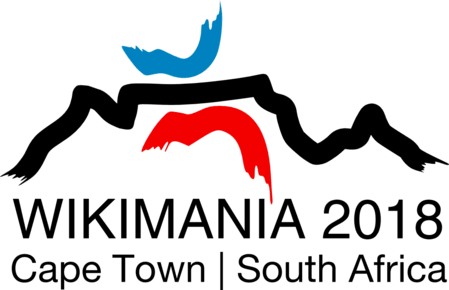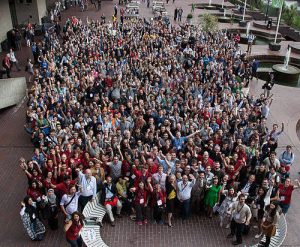
The 14th annual Wikimania conference has been scheduled to hold in Cape Town, South Africa from 18-22 July, under the theme “Bridging knowledge gaps—the ubuntu way forward”
Over 700 volunteers from around the world will come together to discuss and share ideas around the future of Wikipedia and free knowledge globally.

Members of the global Wikimedia movement, including those who volunteer their time to edit and improve Wikipedia articles, create bots, or organise events and projects to attract more content unto Wikipedia and the Wikimedia projects, are all expected to attend.
Other open knowledge advocates will also attend, along with local academics, teachers, heritage specialists, and interested stakeholders.
Across more than 70 sessions, attendees will work to bring the conference theme: Bridging knowledge gaps; the Ubuntu way forward, to life by ensuring that some of the fundamental principles of the Wikimedia movement are contextualised within the rapidly evolving internet narrative.
Confirmed speakers include internet geographist Dr Martin Dittus, who will be speaking on economic development, labour, power, participation, and representation. Joy Buolamwini, a noted female Artificial Intelligence expert fighting to remove bias in machine learning, and Prof. Sean Jacobs whose focus areas includes trends in digital culture are also invited thought leaders at the conference.
“Our vision is a world in which every single person can freely share in the sum of all knowledge. We believe that knowledge belongs to everyone and that people from diverse backgrounds should be empowered to participate in the collaborative creation of knowledge,” said Katherine Maher, Executive Director, Wikimedia Foundation.
Wikimedia is also looking to expand its non-Western topics, where there is still not enough locally relevant content about Africa, particularly that which is gathered from African perspectives or shared in African languages. The same could be said for indigenous knowledge and local knowledge from many places outside the Global North, much of which is still missing. South Africa has active Afrikaans and isiXhosa Wikipedia editions, but most of the other indigenous languages from the continent are either missing or do not have regular contributions on Wikipedia.
Challenges with software localisation, the structure of data, and even the forms of knowledge that Wikimedia has defined as “verifiable” (text-based, rather than oral, for example) are some of the issues the movement is grappling with as it moves actively towards incorporating more diverse kinds of knowledge within Wikipedia and the Wikimedia projects.
This year’s Wikimania conference will take place at the Southern Sun, Cape Sun Hotel. Wikimania 2018 is co-organised by Wikimedia South Africa, the local Wikimedia affiliate organisation of South Africa, and the Wikimedia Foundation, the non-profit that supports the Wikipedia and other free knowledge projects.
The Wikimedia Foundation is the nonprofit organisation that supports Wikipedia, the Wikimedia free knowledge projects, and its mission of free knowledge for every single person.




